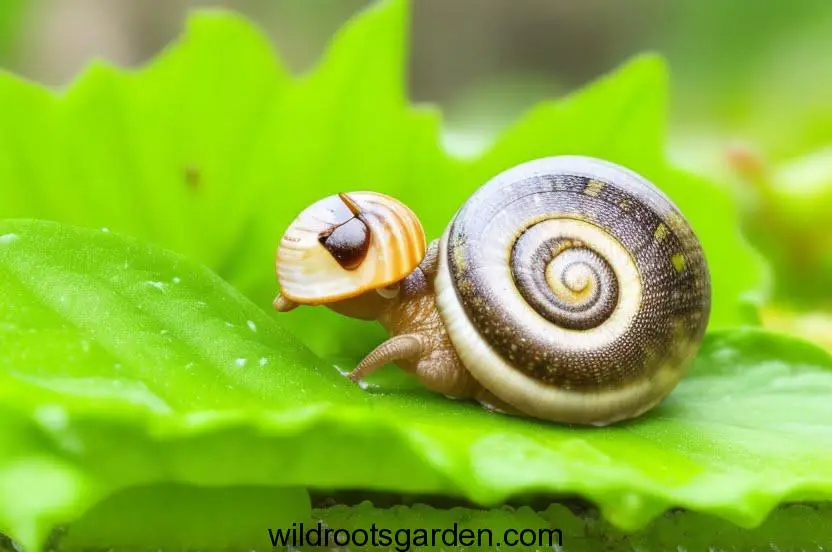Are Garden Snails Dangerous to Humans? Generally speaking, garden snails are not seen as dangerous to people. They don’t possess any toxins or venom that can hurt people. There is a slight possibility that they may be infected with bacteria or parasites that could make them ill. If you are worried about the risks, you can take some preventative measures, such as not eating them and washing your hands carefully after handling them. Garden snail handling tips include using gloves and avoiding touching damaged or deceased snails. A doctor or a pest control expert should be consulted if you have any worries regarding the safety of garden snails.
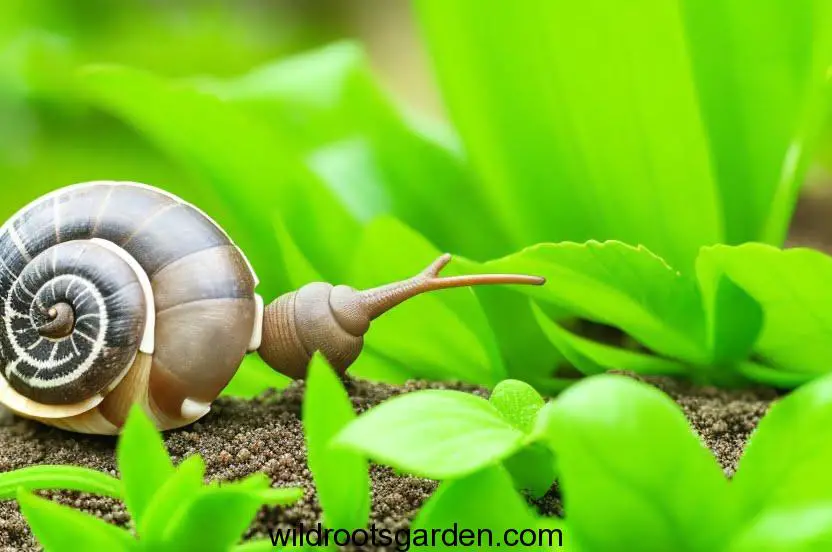
JUMP TO TOPIC
Anatomy and Behavior of Garden Snails
Garden snails can hide inside their hard shell, which protects their fragile bodies when they feel threatened. They are shielded by their shells from environmental hazards and dangerous predators. These snails glide along by tightening and stretching the muscles in their foot, creating a trail of mucus in their wake.
Common Misconceptions about Garden Snails
Are Garden Snails Dangerous to Humans? Regarding the risks posed by garden snails, there are several misconceptions. It’s a common misconception that all snails carry dangerous parasites or diseases, however, this is not totally true. Garden snails themselves do not constitute a serious threat to human health if treated appropriately, despite the fact that some species of snails can spread diseases.
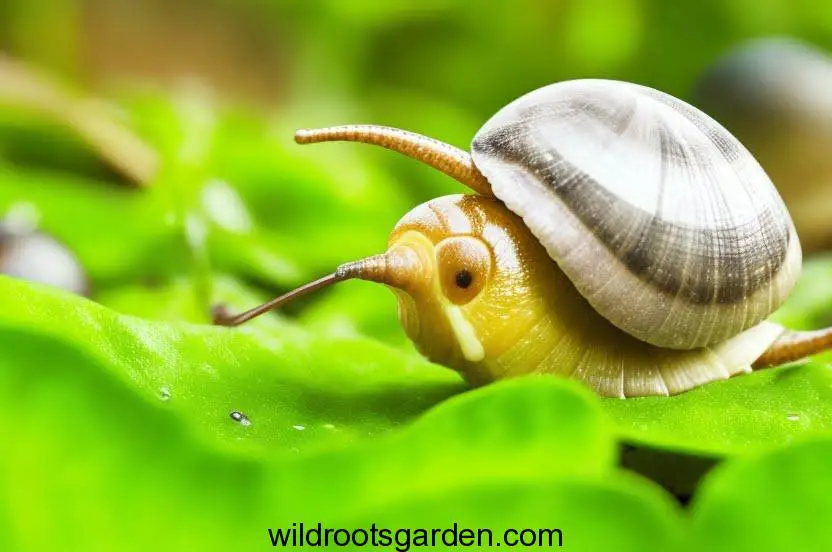
Health Risks Associated with Garden Snails
Although garden snails often do not directly endanger people, there are a few health dangers to take into account. The potential spread of rat lungworm illness is one of the key worries. The parasite that causes this illness can infect snails and slugs. Serious health issues can arise from accidentally eating these contaminated snails.
Are Garden Snails Dangerous to Humans? It’s significant to highlight that rat lungworm disease cases are uncommon and that there is a low chance of infection from garden snails. Nonetheless, it is still advisable to use caution when handling or consuming garden snails, particularly if they have recently come into touch with rodent feces-contaminated regions or areas where rodents are known to congregate.
Prevention and Control Measures
To minimize the potential risks associated with garden snails, it is essential to adopt preventive measures. Here are some recommendations:
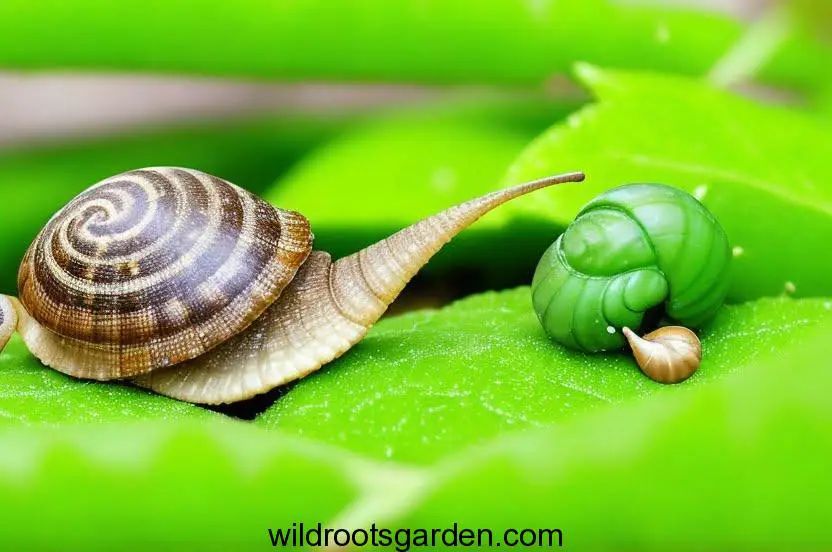
- Avoid handling garden snails with bare hands, especially if you have open cuts or wounds.
- Thoroughly wash your hands after coming into contact with snails or their trails.
- Ensure that fruits, vegetables, and other garden products are thoroughly washed before consumption.
- Keep your garden clean and free from excessive moisture, as snails are attracted to damp environments.
By implementing these measures, you can reduce the likelihood of encountering any health issues related to garden snails.
The Role of Garden Snails in the Ecosystem
Are Garden Snails Dangerous to Humans? Garden snails are important members of the ecology, despite whatever risks they can offer to people. By consuming decomposing organic debris, they aid in the cycling of nutrients, and their feces serves as a natural fertilizer. They also provide food for a variety of creatures, such as birds, reptiles, and mammals. Through their burrowing efforts, garden snails also contribute to soil aeration, which enhances the soil’s general health.
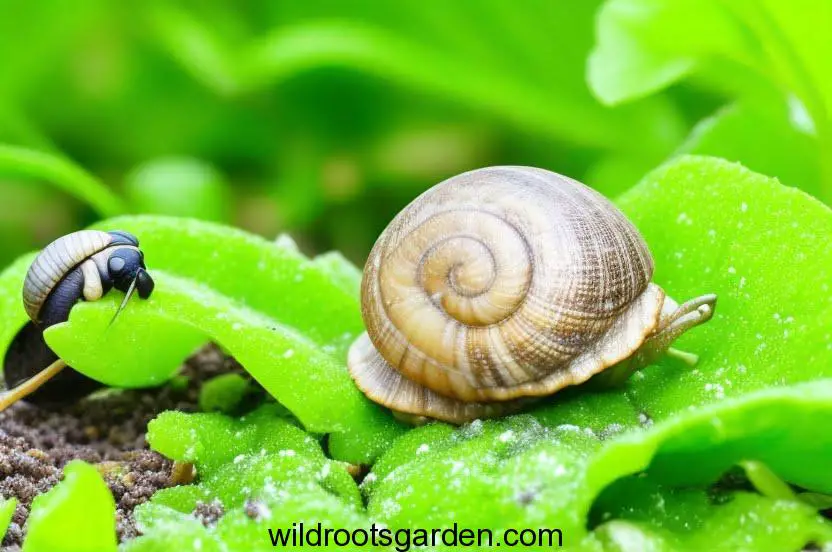
The management of garden snail populations must be balanced with an understanding of their ecological importance. By hand-picking pests or erecting barriers, eco-friendly pest control techniques can help keep gardens healthy while limiting any possible harm.
In conclusion, even though garden snails may not be intrinsically dangerous to people, there are a few things to take into account. Although uncommon, the spread of illnesses like rat lungworm disease raises some possible safety concerns. The hazards can be reduced by taking precautions, like avoiding direct contact with snails and maintaining excellent cleanliness.
Are Garden Snails Dangerous to Humans? Garden snails are crucial to ecology because they help with the cycling of nutrients and provide food for a variety of animals. Hence, maintaining control over snail populations while also acknowledging their ecological importance is crucial.

